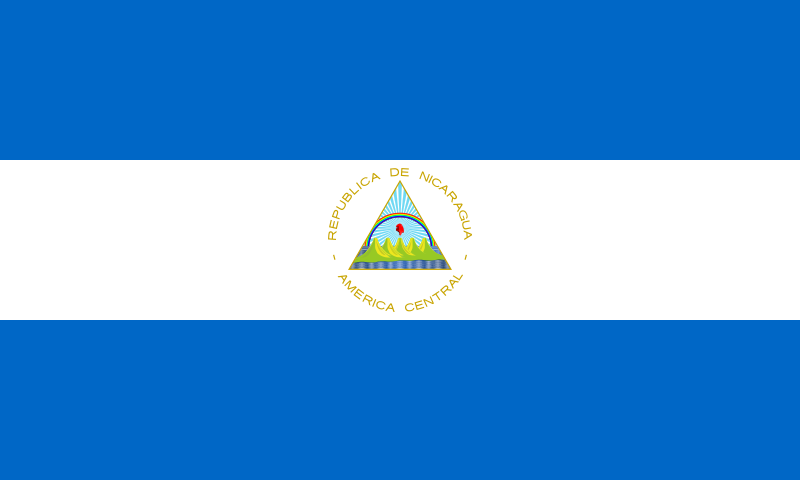
By Peter Tase
Over the past three years, Nicaragua has been trying to deepen ties with major European Union countries, paying special attention to the establishment of various sustainable development initiatives. Nowhere is the strategy more apparent than in Foreign Minister Samuel Santos’ visit to Brussels and Strasbourg in December of 2010, where he secured financing from the European Commission for the Nicaragua Education Project (PROSEN) and funding for anti-dengue and rural public health campaigns from Luxembourg.
Building on these past exchanges, EU Commissioner Andris Piebalgs visited Nicaragua in October 6-7, 2013 to set the tone for establishing a new EU-Nicaragua cooperation program spanning from 2014 to 2020. The stated objectives of the visit were to strengthen EU-Nicaragua bilateral relations and ascertain the country’s socioeconomic situation. Commissioner Piebalgs’ visit took place just one week after the signing of a tripartite agreement between the European Union, the World Bank and the Nicaraguan government for the implementation of PROSEN, which is projected to benefit more than 551,000 students—part of the previous 2007-2013 cooperation program that saw the EU contribute over €32 million. According to Commissioner Piebalgs ” [his] first visit to the country was made in the context of a new cooperation cycle and that the cooperation strategy has been established with the active participation of the government and key sectors in Nicaragua. [Both parties] will share the challenge of increasing the impact of [their] actions, focusing on the sectors where the population is in most need of [the support provided by the European Union].” [1]
It is hoped that EU-Nicaragua cooperation will improve local education, economic development and trade opportunities, as well as attract new investors to Managua and other provinces. The European Union will allocate about €204 million to improve public health and the education system in rural Nicaragua, though this disbursement is still pending approval from the European Parliament and the European Council. The European Union has also established a fund of €8 million in support of the development of small and medium-sized enterprises in Nicaragua. [2]
Although Nicaragua ranked just 124th on the World Bank’s “Doing Business in 2014” list, the country has experienced modest economic growth of 5.2 percent in 2012 and 5.45 percent in 2011. In the capital city of Managua, extreme poverty has been reduced from 18 percent in 2005 to 9 percent today. And future growth prospects are boosted by the country’s demographics: 31 percent of the Nicaraguan population is under 15 years of age.
However, Nicaragua still has a long way to go in terms of improving its electoral transparency and democratic institutions; two critical elements for attracting foreign investment. These challenges were evident in the 2011 general elections in which Daniel Ortega, the incumbent president, was re-elected for a third time. The lack of new elites in the political process and communication failures between the National Sandinista Liberation Front and the two main opposition parties – the Constitutionalist Liberal Party and the Independent Liberal Party – are two oft-cited examples from international observers.
The United Kingdom is another priority in Nicaragua’s push towards Europe. In the end of February 2013, a high-level delegation of British executives visited Nicaragua to explore new areas of investment potential within the country. Similar to the EU initiative, the visit was intended to spur British private investment into the country, particularly in regards to the Nicaraguan bi-oceanic channel. The delegation was accompanied by UK Non-Resident Ambassador Chris Campbell, who stated: “Last year when I spoke with President Ortega, I was committed to deepening bilateral trade relations and this is a concrete example of that commitment.” This delegation represented the first British trade mission to Nicaragua in over five years. [3]
The Government of Daniel Ortega has diversified food industry and agricultural exports. Food processing sector has recently attracted various European investors and strengthened the national economy. Additionally the sector of bio-fuels’ industry and potential use of vacant lands in forestry projects have received significant attention from foreign investors and corporations. [4]
In November, Nicaraguan Foreign Minister Samuel Santos Lopez visited London to promote his country’s growth potential and infrastructure development opportunities to international investors. In a business meeting with leaders of the Latin American House London, the Nicaraguan chief diplomat underlined the political stability, attractive labor laws, tax incentives and comparative advantage that his country offers.
Great Britain has traditionally supported Nicaragua’s path to prosperity and economic growth, and while UK investment has trended on the low end of the spectrum, now is the time for both countries to take concrete steps forward and solidify their close political cooperation by generating more British investments in Managua. In this context, both parties are committed to strengthening bilateral economic opportunities and promoting British private investment in Nicaragua, especially in the areas of infrastructure, energy and in the recent project of the inter-oceanic canal being promoted by President Daniel Ortega.
Sources and References:
[1] http://europa.eu/rapid/press-release_IP-13-915_en.htm [2] http://ec.europa.eu/commission_2010-2014/piebalgs/index_en.htm [3] http://www.nicaraguadispatch.com/news/2013/02/british-trade-mission-visits-nicaragua/6909 [4] http://www.pronicaragua.org/en/investment-opportunities/food-processing



